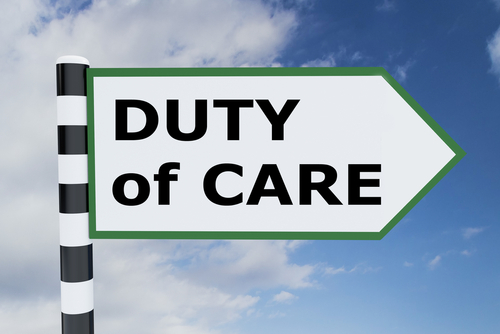4. Report problems. Legal and ethical
8. Duty of care

Duty of care is the legal responsibility to protect the safety and wellbeing of others, which includes taking all reasonable steps not to cause foreseeable harm to another person.
Remember that as an AHA it is incumbent on you to ensure that the health, wellbeing and emotional and physical safety of the person in your care is upheld at all times. If you believe a breach of legislation, standards, codes of practice or guideline documents has occurred, you MUST report this immediately or as soon as is practicably reasonable to the appropriate people.
Likewise, If you suspect a task might be outside your role, knowledge and skills, you must consult your supervisor as to what to do next. You can face legal proceedings if, as an AHA, you are in breach of your duty of care.
Duty of care relates to the law of negligence, which recognises that people must take proper care to avoid harm to others. Duty of care refers to the duty (obligation) of all health and community workers to take care when they work with people. A duty of care exists whenever our actions could reasonably be expected to affect other people.
As an AHA you must maintain a duty of care to yourself, your patients/clients and your organisation. This means conducting yourself in a professional manner and protecting the patient's/client's rights to health, safety, dignity, confidentiality and self-determination. This will include managing risk and following the directions of the AHP for the tasks you haven been assigned.
There are also restrictions to what you can take on in your role. This means AHAs must think ahead about possible risks or dangers to the people they are providing care for and making sure they are following correct workplace procedure. For example, in upholding your duty of care, you must never perform tasks that are dangerous or which you have not had training in.
Behaviours or actions that represent a reasonable 'standard of care' always depend on the context including:
- the situation
- people involved
- what people knew at the time.
Meeting your duty of care
- Make sure you are aware of all relevant information (obtained from handover meetings, progress notes, policies, procedures, standard operating procedures, legislation, regulations, guidelines and so on).
- Always follow policies and procedures.
- Do not act outside of your training or job role.